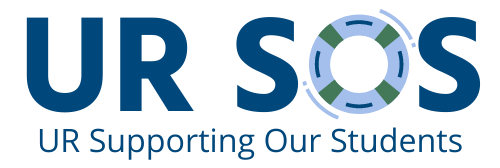UR-SOS Project ECHO
Strengthening Educators’ Response to the Mental Health Needs of Teens
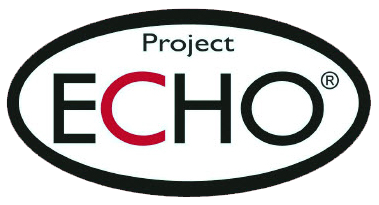
UR-SOS Project ECHO Connects Adolescent Mental Health Specialists with Front-Line Educators Supporting Teens with Serious Mental Health Needs.
Project ECHO: Ensuring the right knowledge exists at the right place at the right time.
About Project ECHO
UR-SOS Project ECHO® (Extension for Community Healthcare Outcomes) transforms the way education and knowledge are delivered. This telementoring model supports case-based learning and provides specialty training for education professionals supporting teens with serious behavioral health needs. ECHO® uses video-conferencing technology to connect learners with experts at the University of Rochester Medical Center and within the community at large.
The result: Youth and families get the right care, when they need it, and close to where they live, learn, and play.
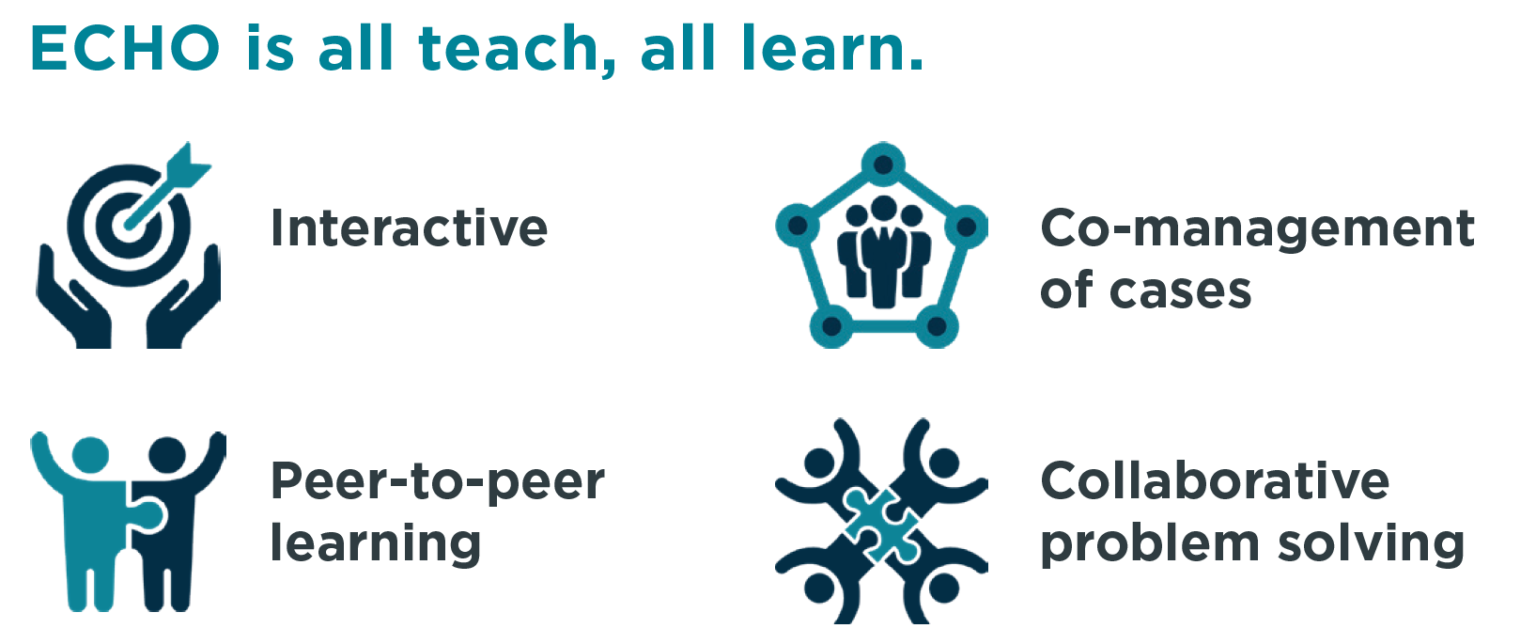
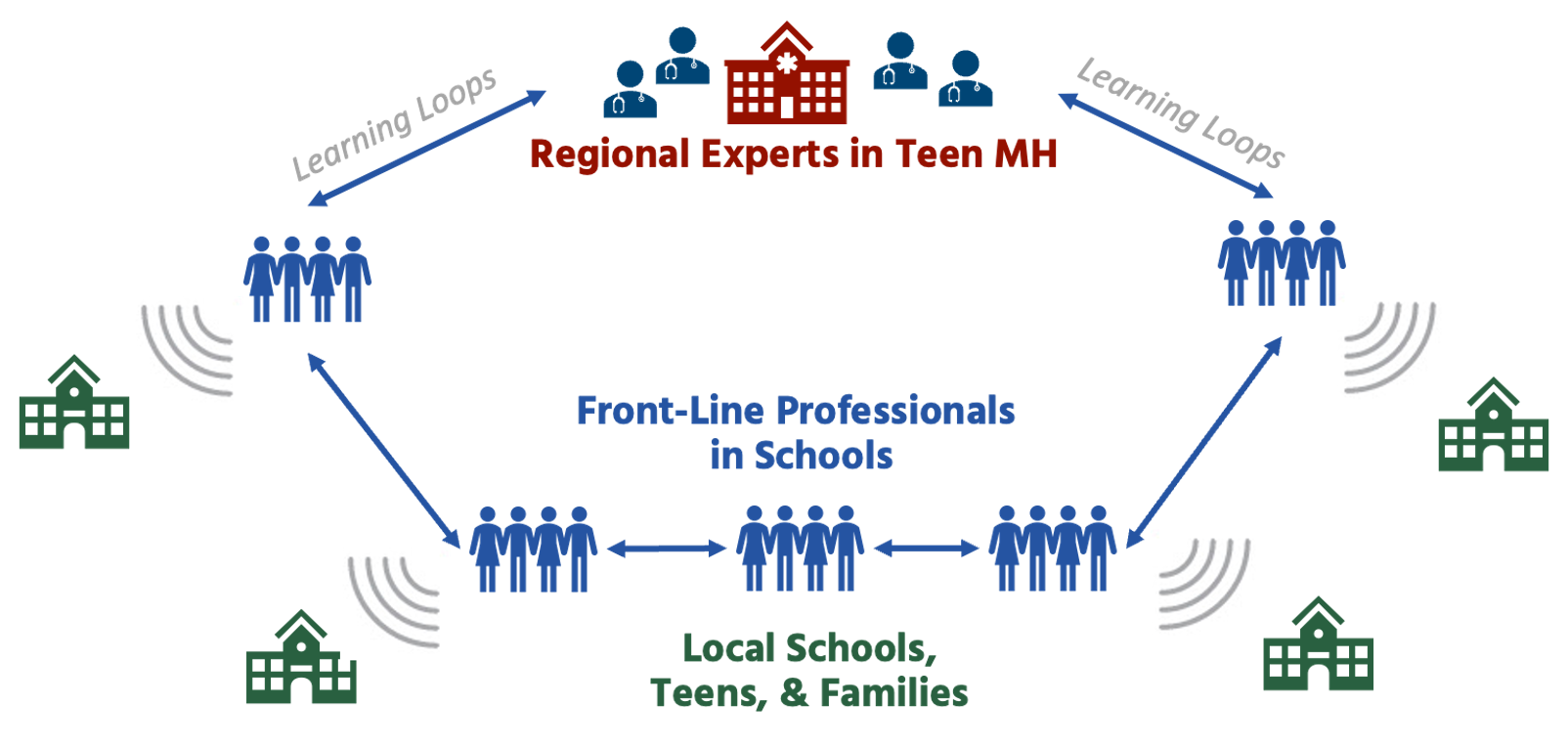
The ECHO Model and its Benefits
This low-cost, high-impact intervention is accomplished by linking expert interdisciplinary teen mental health specialist teams (“hubs”) with educators and school mental health practitioners (“spokes”) through teleECHO™ clinics.
Twice-monthly UR-SOS ECHO sessions bring together interdisciplinary experts in adolescent mental health and school-based partners using web-based videoconferencing technology. During each session, experts mentor educators and school teams to help them manage their patient cases and share their expertise via mentoring, guidance, feedback, and didactic education.
Structure and Schedule
Fall 2024 UR-SOS ECHO Sessions will be held 2x/month via Zoom on Thursdays at 11:00 – 12:00
11:00 to 11:35 – Introductions, case presentation, discussion and recommendations
11:35 – 12:00 – Didactic presentation, Q&A
Case Presentations
The Foundation of All Teach, All Learn

Peer Learning in Project ECHO is Fueled by YOU!
De-identifeid case presentations offer an opportunity to brainstorm evidence-based solutions or share successes with colleagues and other professionals within the network. Case presentations are a key component in the Project ECHO model and are critically important for knowledge building and sharing.
We welcome cases that involve common scenarios related to adolescent mental health in schools, as well as difficult, complex or challenging presentations and management scenarios. The benefits of presenting a case during an ECHO session include receiving feedback on current strategies, expert and peer guidance on accessing local resources, strategies for implementing best practices with fidelity, and improving individual and program outcomes by reducing variations in services and support
UR-SOS Project ECHO Curriculum

SAMPLE UR-SOS TOPICS
UR-SOS ECHO Sessions will be held twice per month via Zoom, on Thursdays at 11:00 – 12:00.
Recognizing and Approaching Youth in Distress
This ECHO will focus on universal screening for behavioral health (BH) challenges, and evidence-based screening tools identified by the American Academy of Pediatrics (AAP) as acceptable for adolescent BH including the SDQ, the PHQ-9, and the PSC-17. We will highlight best practices in school-based BH screening, including the Screening Toolkit and resources available via the School Health Assessment & Performance Evaluation (SHAPE) System and guidance offered in SAMHSA’s Ready Set Go Review toolkit, designed to provide readily available resources to facilitate implementation of BH screening in schools. – Melissa Heatly, Ph.D.; Allison Stiles, Ph.D.
Supporting Common Emotional and Behavioral Concerns at School
ECHO experts will offer didactic instruction on recognizing common mental health challenges in schools (e.g., anxiety, school avoidance, depression), discussing concerns with family members, and referral to/coordination with appropriate community- and regional-BH supports. Evidence-based tools will include Facts for Families24 from the American Academy of Child & Adolescent Psychiatry, and Get the Facts guides from SAMHSA. —Jim Wallace, MD
Evidence-Based Treatment for Teens with Serious Mental Health Concerns
Teen Substance Use in Western New York
This session will discuss the public health burden of substance use among teens including tobacco/nicotine, alcohol, prescription drugs, and non-prescription drugs, and discuss how these show up in educational environments in Ontario County. We will also discuss the comorbidity of mental health and substance use in teens. Participants will state the components of initial substance use screening, including CRAFFT questions, and describe when to use brief advice, motivational interviewing, and/or refer to treatment for substance use treatment. Trends in Western New York and Ontario County will be identified and discussed, and resources will be shared. — Leah Hill, Adolescent & Young Adult Services; Tracey Dello Stritto, Trends and Supports in Ontario County
Serious Mental Health Challenges & Safety Planning
Didactic instruction will provide school-based strategies for recognizing youth at risk of early thought disorders, psychosis, self-harm and suicidality. Presenters will discuss resources for supporting and referring youth who may be at risk or struggling with emerging psychotic disorders, for identifying youth at risk of suicide, and for intervening. Tools will include using the Columbia-Suicide Severity Rating Scale (C-SSRS) to assess for safety and triage next steps, followed by principals of the Stanley-Brown Safety Planning protocol, with specific discussion regarding application within school settings. — Tricia Kilbourne, URMC INTERCEPT Clinic & McKenzie Smallcomb, START Clinic, Pediatric Behavioral Health & Wellness
And Other Topics as Indicated
Additional topics may include “Equity in School Mental Health”, “Supporting Telehealth in Schools”, “Supporting School Avoidant Youth”, and others.
Meet Our Faculty
UR-SOS is supported by regional experts in Teen & School Mental Health.

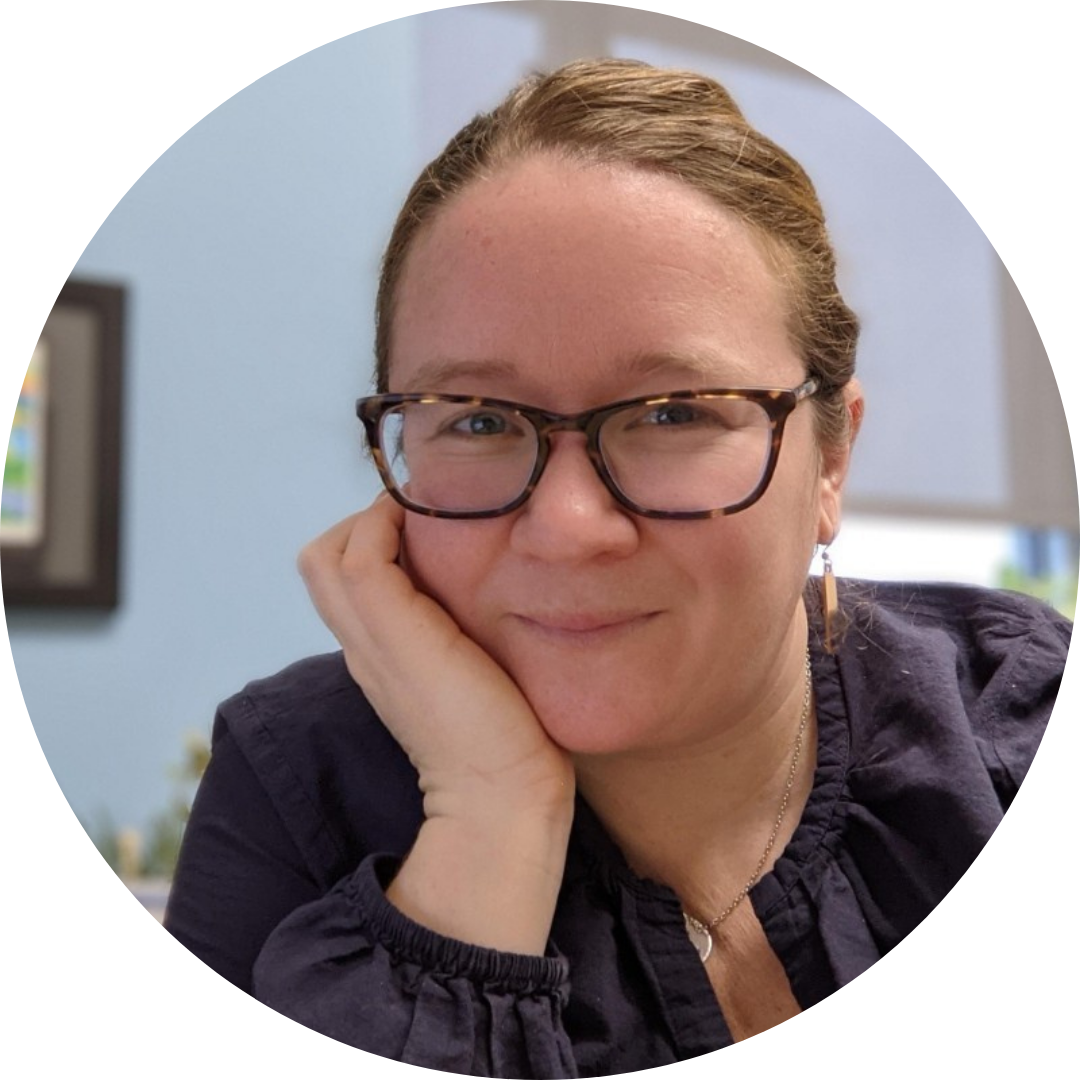
Melissa Heatly, Ph.D.
UR-SOS Project ECHO Clinic Director
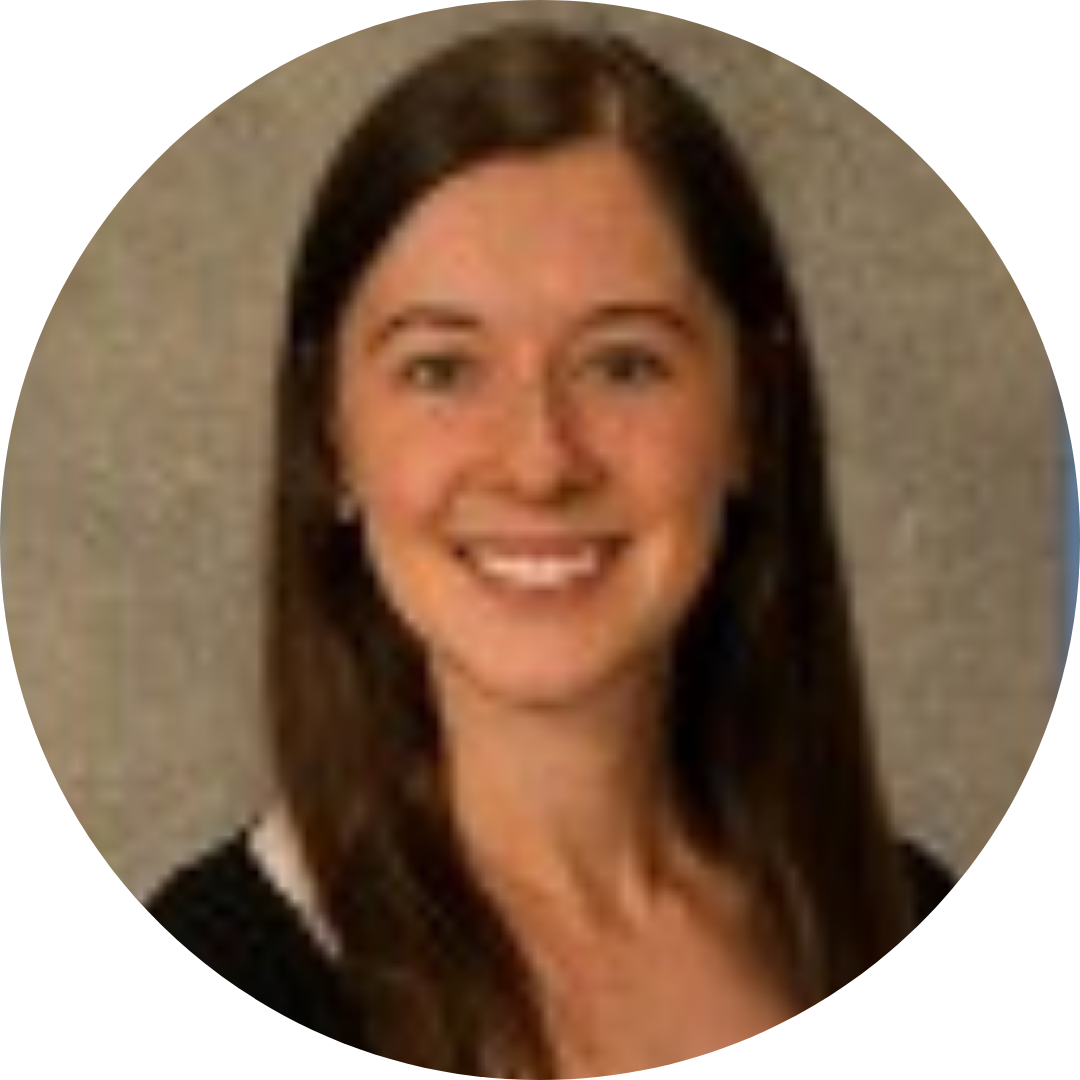
Allison Stiles, Ph.D.
Expert, School Mental Health
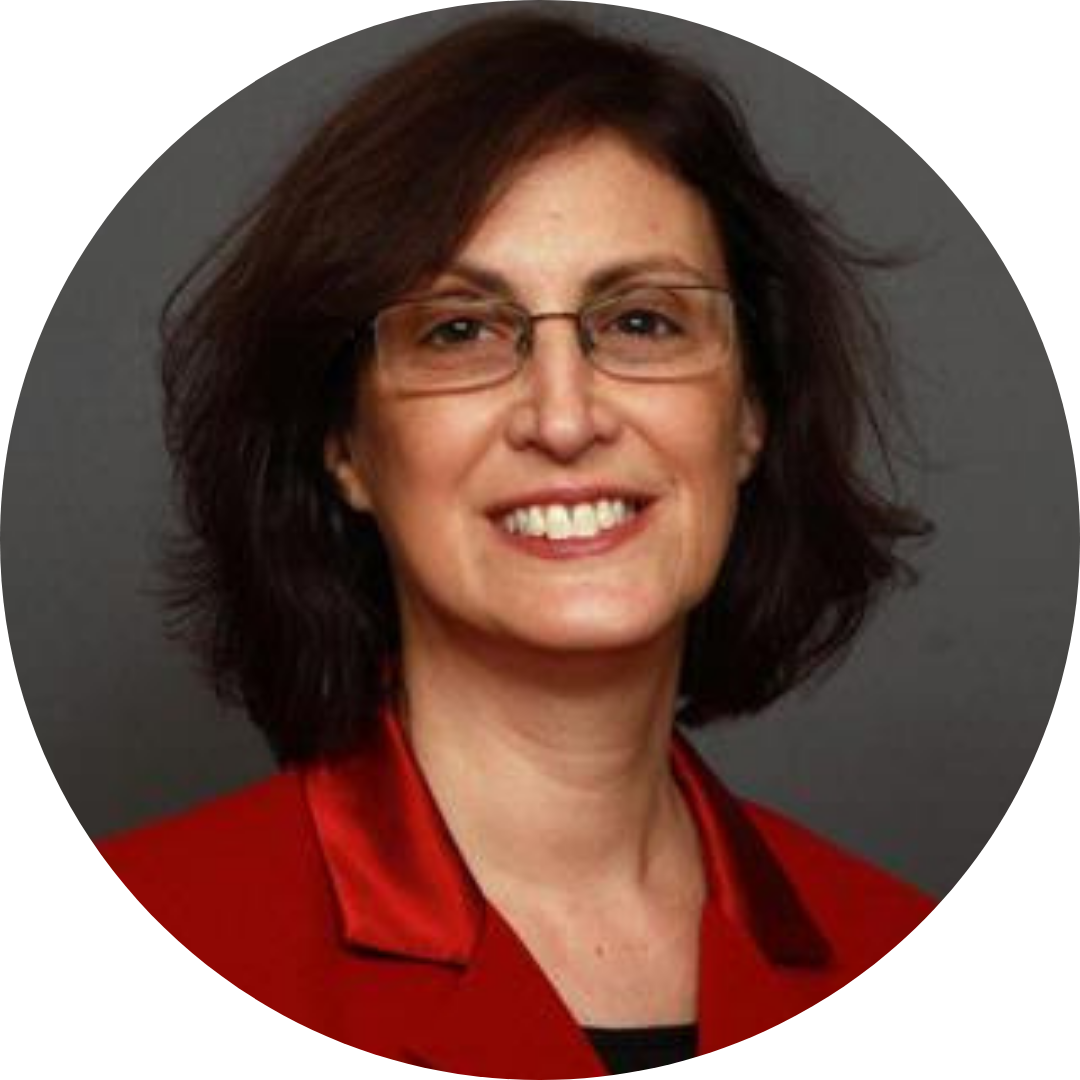
Linda Alpert-Gillis, Ph.D.
Expert, Teen Mental Health
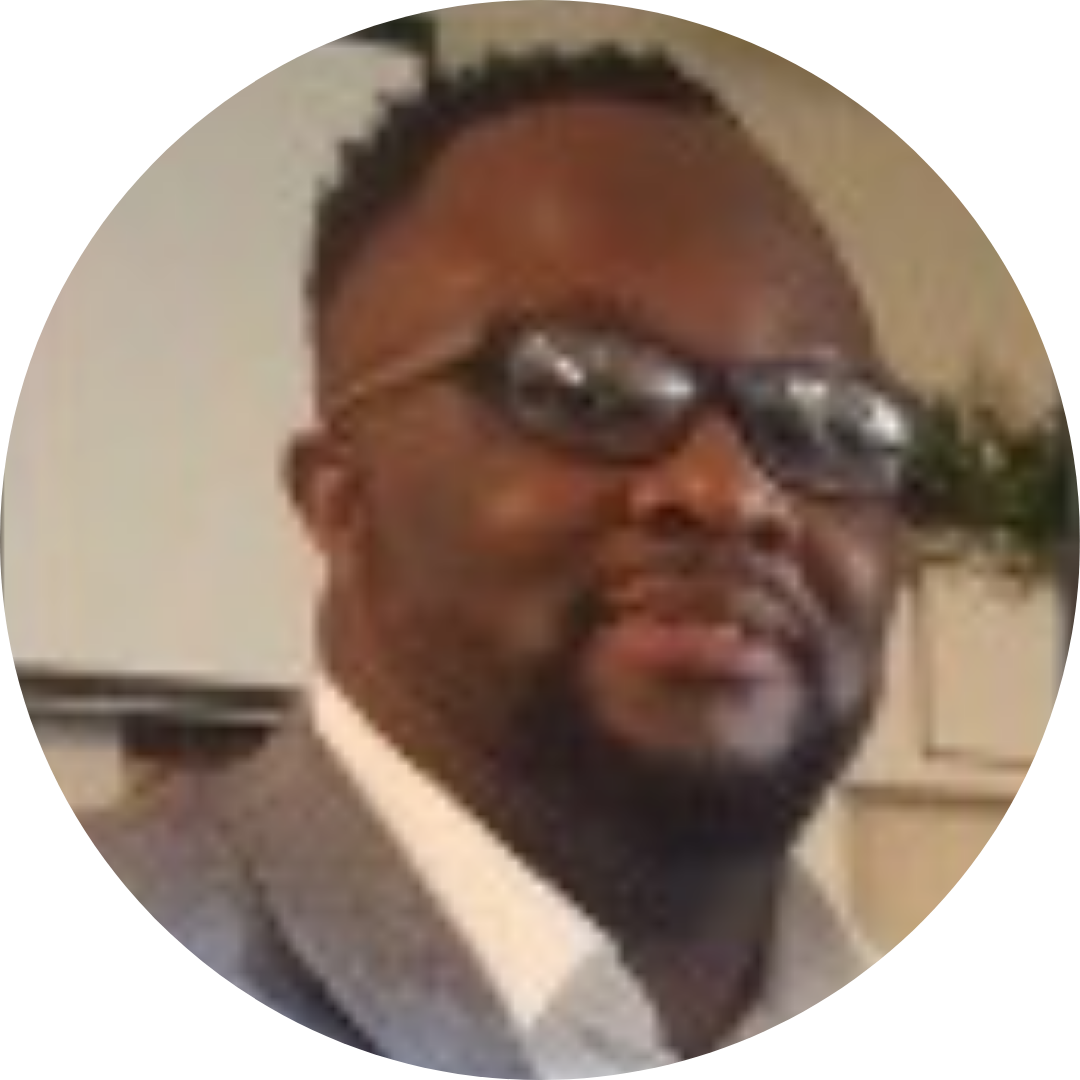
Jerard Johnson
Expert, Community Resources
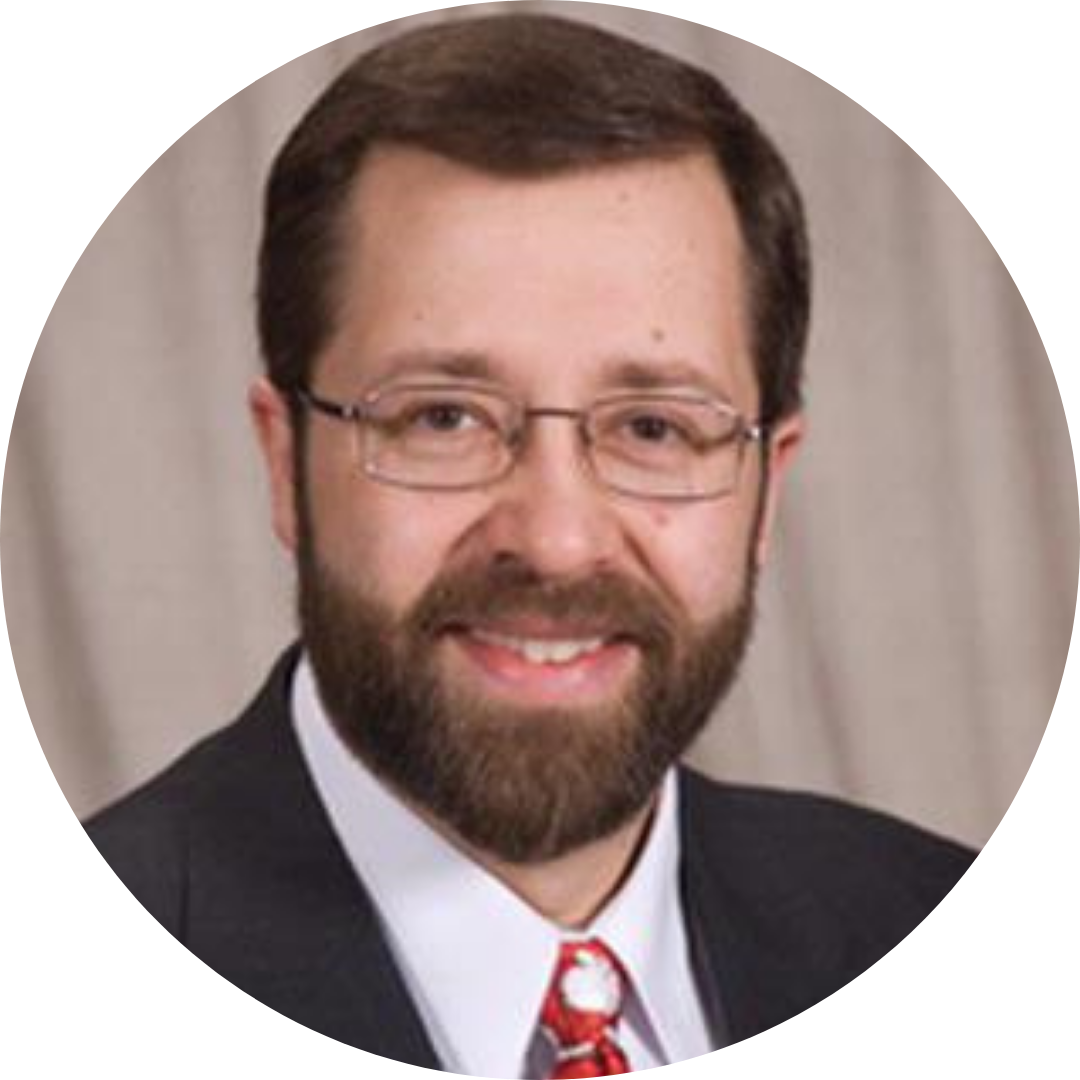
Mike Scharf, MD
Expert, Child Psychiatry
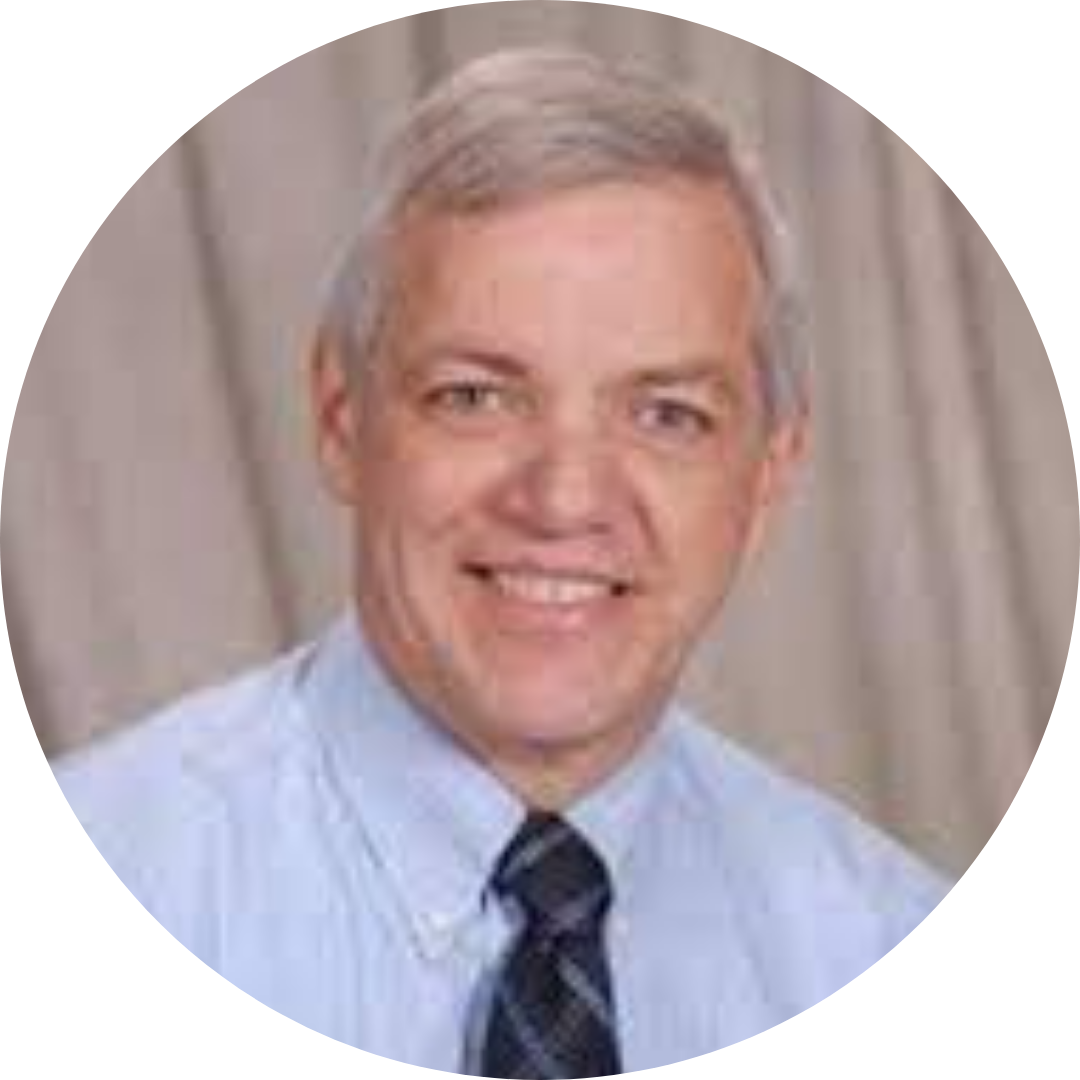
Jim Wallace, MD
Expert, Psychiatry in Schools
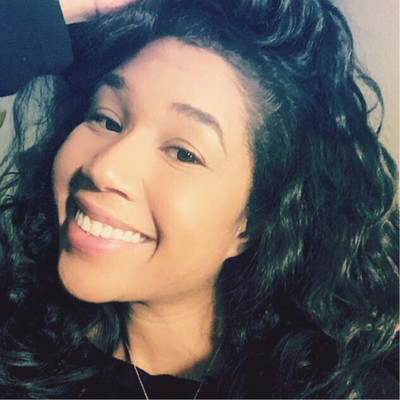
Leah Hill
Expert, Teen Substance Use
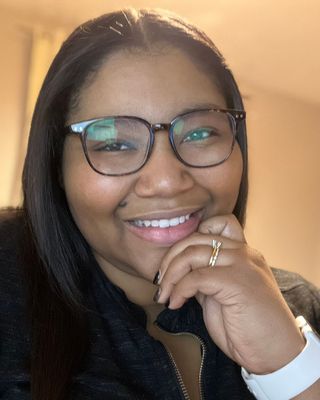
Brianna Daniels, LMHC
Expert, School Mental Health
Learn More about Project ECHO
To learn how the University of Rochester’s Center for Experiential Learning uses Project ECHO to improve community healthcare outcomes, including other Project ECHO Programs supported by UR Medicine, please follow the link below.
